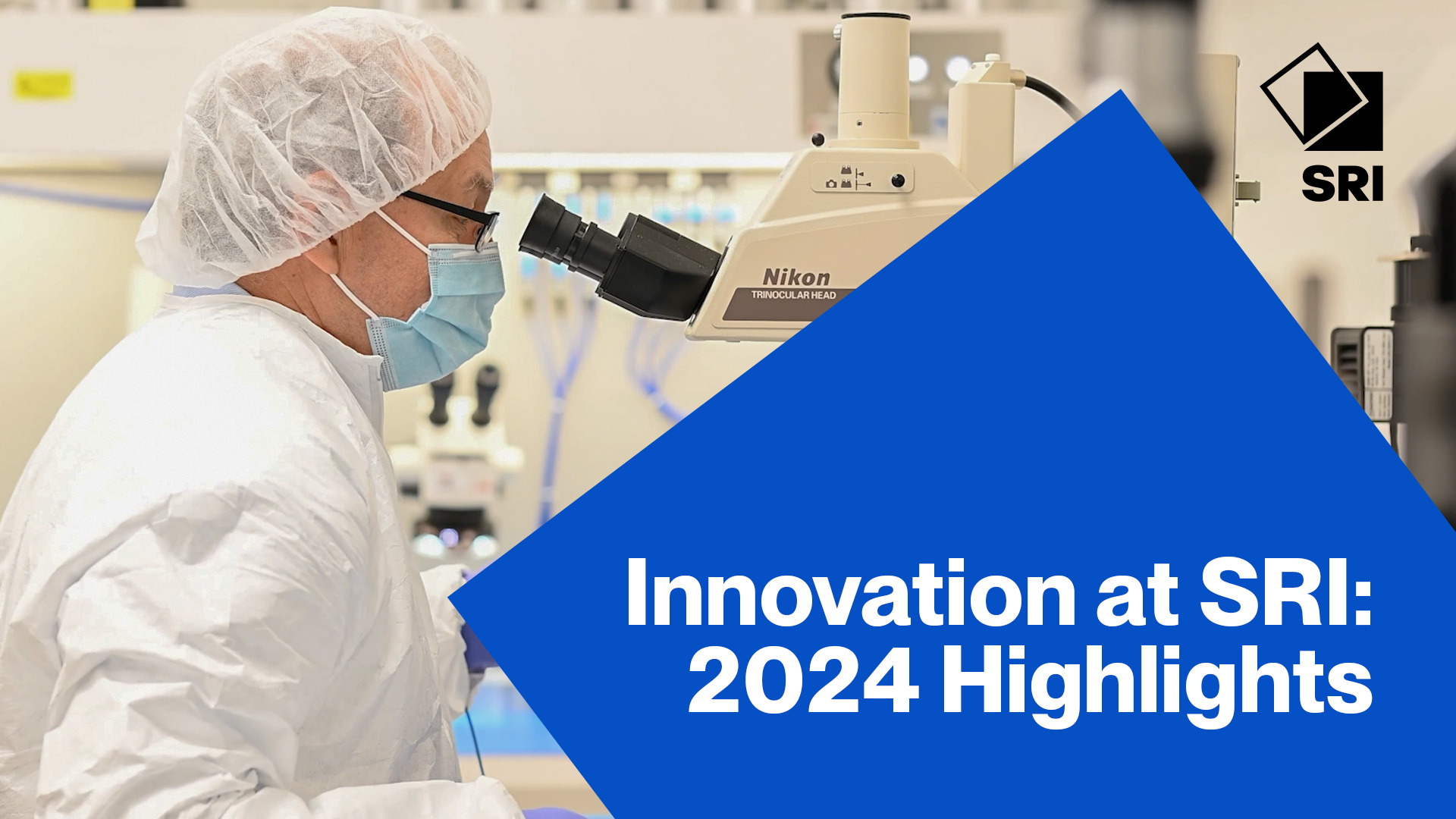
One of SRI International’s foundational competencies is to inspire and innovate, which is what we are constantly doing at SRI Education. The education division has been a leader of science, technology, engineering, and mathematics (STEM) and computer science (CS) education, from preschool through 12th grade.
Through our STEM & CS program area, SRI Education supports all students to learn concepts and practices they need to engage productively in society as citizens. We have projects focusing on curriculum design, assessment design, design of teacher supports, learning sciences research, multidisciplinary STEM and computing (STEM+C) integration, impact studies, and external evaluation of domestic and international STEM & CS projects and district-wide STEM & CS initiatives. Our emphasis on equity across our areas of focus and disciplines opens opportunities for all students to pursue higher education and career goals in the STEM & CS disciplines.
This month’s newsletter highlights key STEM & CS projects that are having a positive effect in the field, the researchers behind this impactful work, and recent STEM & CS publications.
Learn more about our STEM & CS program.
Assessing Collaboration Through Innovative Vision Technology (ACTIVITY)
The ACTIVITY project offers an innovative solution to measuring and supporting the development of collaboration skills as students engage in STEM learning activities. SRI researchers are creating machine learning models that can characterize student interactions and behaviors when they work collaboratively in person or through a virtual platform like Zoom or Skype. These machine learning models focus on behavior to potentially decrease dependence on discourse and content-based dialogue and increase the transferability of this work into various domains. This project will help teachers improve their understanding of productive collaboration.
ACTIVITY is funded by the National Science Foundation (officially called Automated Collaboration Skills Assessment Using Behavioral Analytics).
To learn more about emergent ACTIVITY research, read Collaboration at Scale: Exploring Member Role Changing Patterns in Collaborative Science Problem-solving Tasks.
Science Projects Integrating Computing and Engineering (SPICE)
The SPICE project addresses the critical need for curricular materials that integrate concepts from science, engineering, and computational thinking. SRI researchers have created (1) a tested and refined Next Generation Science Standards (NGSS)-aligned, technology-enhanced 3-week STEM+C curriculum unit for fifth and sixth-grade students; (2) a suite of teacher resources to help implement this unit; and (3) a validated assessment to measure student learning across the three disciplines. The project design incorporates a fair and equitable framework to help guarantee that curriculum materials and technology support are pertinent and beneficial to diverse student groups.
Students working on the SPICE curriculum solve a water runoff challenge by learning the underlying science concepts related to water runoff, creating their own computational models for runoff, and using their computational models to test, refine, and optimize their design solutions to the challenge. SPICE research studies demonstrate that given appropriate support, students as early as fifth grade with no programming experience can use block-based programming tools to create their own computational models and demonstrate significant learning in science, engineering, and computational thinking.
SPICE was funded by the National Science Foundation through an award of over 2.5 million dollars. SRI has recently been awarded another grant that builds off SPICE to study the effects of different types of computational modeling on students’ science, engineering, and computational thinking learning.
Learn more about SPICE. Download the SPICE curriculum materials.
Playful Formative Assessment for Computer Science (PFACS)
Through practical application of computational thinking and computing activities, the PFACS project addresses challenges in interpreting and assessing middle school student’s understanding of data science concepts in authentic settings. SRI researchers developed a game-based assessment for data science This assessment provides teachers with formative feedback about student understanding based on students’ gameplay, which supports activities to help teachers bridge gameplay with classroom instruction. The game, Beats Empire, allows students to assume the role of a recording studio manager and decide which artists to hire and what songs to record by analyzing trends in data from an imaginary metropolis. The topics of data collection, storage, visualization, and interpretation are relevant across many subjects, including math and science.
SRI Education Senior Researcher Daisy Rutstein, PhD, led the PFACS project.
This project was funded by the National Science Foundation (officially called Formative Assessments for Computer Science in NYC).
Read a book on the project: Designing a Formative Assessment Game for Data Science. Or give the interactive game a try yourself – Beats Empire!
Meet Our STEM & CS Leads
Andrea Beesley, PhD, Senior Principal Education Researcher, STEM & CS Program Area Director
Andrea has more than 20 years of experience designing and leading large research, evaluation, and design and development projects. In STEM and digital learning, Andrea’s work includes studies of mathematics identity in after-school programs, Python programming activities as a scaffold for mathematics generalization, game design to increase computer science interest, and a large-scale 1:1 iPad initiative in under-resourced schools.
Check out Andrea’s bio to learn more about the innovative work she is doing
Nonye Alozie, PhD, Principal Education Researcher, STEM & CS Program Area Deputy Director
Nonye leads the ACTIVITY project. She specializes in science education, science standards-based assessment design using evidence-centered design, classroom research, machine learning to understand human-to-human interactions in learning settings, and scientific discourse. Nonye’s work also aims to provide quality science education through equitable and inclusive learning opportunities and experiences.
Check out Nonye’s bio to learn more about the innovative work she is doing.
-

Nonye M. Alozie
Deputy Director of STEM & CS Program Team/ Principal Education Researcher, SRI Education
Satabdi Basu, PhD, Principal Education Researcher, STEM & CS Center Program Area Deputy Director
Satabdi led the SPICE project and currently leads multiple other STEM & CS projects. Satabdi conducts research in computer science education that spans the design, development, implementation, and evaluation of curricula, learning environments, assessments, and teacher professional development that foster computational competencies for K–12 students and teachers. She is particularly interested in exploring the synergies between computer science and the disciplines of science, engineering, and mathematics, and she has more than 10 years of experience in designing STEM+C integrated curricular experiences.
Check out Satabdi’s bio to learn more about the innovative work she is doing.
-

Satabdi Basu
Principal Education Researcher, SRI Education
Recent Publications
Discover more about how we are making an impact in our recent research and resources:
- Journal article: “A Principled Approach to Designing Computational Thinking Concepts and Practices Assessments for Upper Elementary Grades”
- Journal article: “Elementary Students’ Mathematics Identity: Findings from a Longitudinal Study in an Out-of-School Setting”
- Research publication: “Standards-Aligned Instructional Supports to Promote Computer Science Teachers’ Pedagogical Content Knowledge”
- Report: “Building Capacity for K-12 Artificial Intelligence Education Research: Workshop 3 Report”
- White paper: “Building Teacher Capacity in K–12 Computer Science by Promoting Formative Literacy”
- Guide: “Practice Guide: Applying a Principled Approach to Develop and Use K–12 Computer Science Formative Assessments”
Join Our Team
Learn about education research career opportunities at SRI in early childhood, college and career pathways, digital learning, STEM and computer science, teaching quality and school reform, and data sciences, as well as other employment opportunities!


